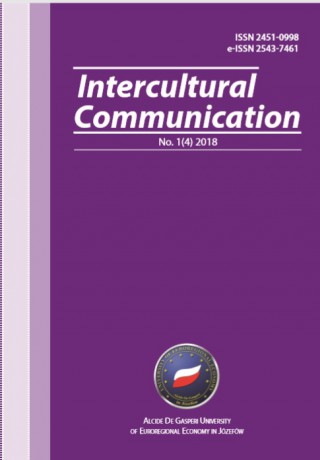Репрезентация концептов "добро" и " зло" в языковой картине мира русского и казахского народов
Representation of “the Good” and “the Evil” Concepts in Russian and Kazakh Language Picture of the World
Author(s): Kenish Abildayeva, Meruert Amangaziyeva, Aliya Yergazina, Kyrmyzy YessenovaSubject(s): Applied Linguistics, Communication studies
Published by: Wydawnictwo Akademii Nauk Stosowanych WSGE im. A. De Gasperi w Józefowie
Keywords: concept; language picture of the world; conceptual opposition good and evil
Summary/Abstract: In the article the linguistic interpretation of lexemes representing concepts “the good” and “the evil” in the language picture of the world in Russian and Kazakh people has been considered, the national and cultural originality of concrete ethnos have been emphasized. In particular, it has been specified that through moral categories, philosophical, cultural and esthetic concepts of a nationatlity cultural originality of people can be revealed.Purpose: identification of the contents and structure of conceptual opposition “the good – the evil” through the system of their verbal representation means in Russian and Kazakh languages including the analysis of the lexical units representing conceptual opposition “the good – the evil” being the major field for the research.Methods: interpretations of the text, observation, comparison, statistical, component analysis, comparative-historical method.Conclusions: in the suggested work the concept of “good” and “evil” have been considered from two poins of view. On the one hand, they have been seen as mental units showing understanding of words by an individual under the conditions of speech activity. The main concept’s function in this aspect is the replacement function which provides saving time and efforts when perceiving a text.The most important features of the concept in this reference are the degree of its completeness, expansion in comparison with the word meaning; degree of the concept components proximity which are staticized in consciousness of different native speakers in one context. On the other hand, the concept has been considered as a block of collective knowledge (concept) of its national specifics and communication with features of the Russian and Kazakh cultures, history and mentality.
Journal: Intercultural Communication
- Issue Year: 1/2018
- Issue No: 4
- Page Range: 21-36
- Page Count: 16
- Language: Russian

